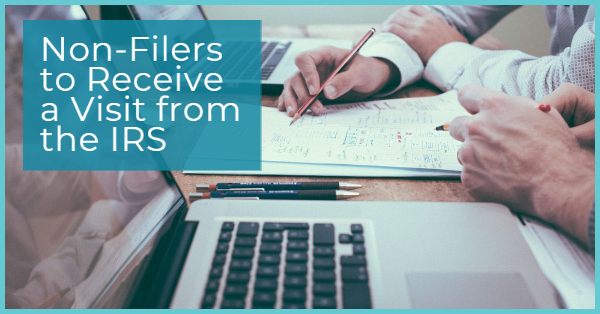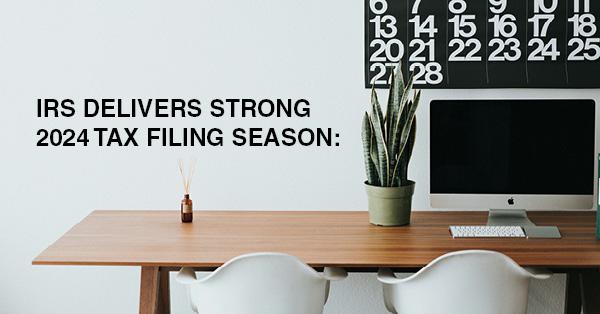Tax Non-Filers to Receive Visit from IRS

The Internal Revenue Service announced it will visit more taxpayers who have not filed tax returns for prior years in an effort to increase tax compliance and further enforce the law. In addition, the IRS is increasing the use of data analytics, research and new compliance strategies, including personal visits, to reach taxpayers and tax return preparers who have not filed federal tax returns.
The goal of these strategies is to bring delinquent taxpayers into compliance with their filing and payment tax obligations and promote future tax compliance.
To further promote voluntary compliance with tax laws, the IRS is using new ways to leverage existing processes and systems, including:
- Increase the identification and case creation for individual and business non-filers. New cases will be assigned to IRS employees for appropriate resolution.
- Automated Substitute for Return program (ASFR). This affects individual taxpayers who have not filed tax returns, but whose available income information shared with the IRS indicates a significant income tax liability. As part of the ASFR program, the IRS sends notices to these taxpayers alerting them to the potential liability.
- Automated 6020(b) process. Promotes employment tax filing compliance by identifying business taxpayers with employment tax requirements who have not filed for a specific period. Ensuring businesses comply with their employment tax filing and payment requirements is another priority for the IRS.
- Delinquent Return Refund Hold program (DRRH). Systemically holds an individual taxpayer's income tax refund when their account has at least one unfiled tax return within the five years surrounding that return.
In addition, the IRS is also working with key partners to better educate taxpayers and tax professionals on filing requirements.
The IRS reminds taxpayers that many non-filers are actually owed refunds, and they are also encouraged to look into filing their tax returns. The deadline for claiming refunds on 2016 tax returns is April 15, 2020.
For taxpayers who haven't filed in previous years, the IRS has current and prior year tax forms and instructions available on the IRS.gov Forms and Publications page or by calling toll-free 800-TAX-FORM (800-829-3676).
Taxpayers who are missing Forms W-2, 1098, 1099 or 5498 should request copies from their employer, bank or other payer. Those who are unable to obtain these missing forms can order a free wage and income transcript at IRS.gov using the Get Transcript Online tool. Alternatively, taxpayers can file Form 4506-T to request a wage and income transcript. This transcript shows data from information returns received by the IRS, such as Forms W-2, 1099, 1098, Form 5498 and IRA contribution information. Taxpayers can use the information from the transcript to file their tax return.
Visit IRS.gov for information on options for paying now and options for taxpayers who can't pay now.




